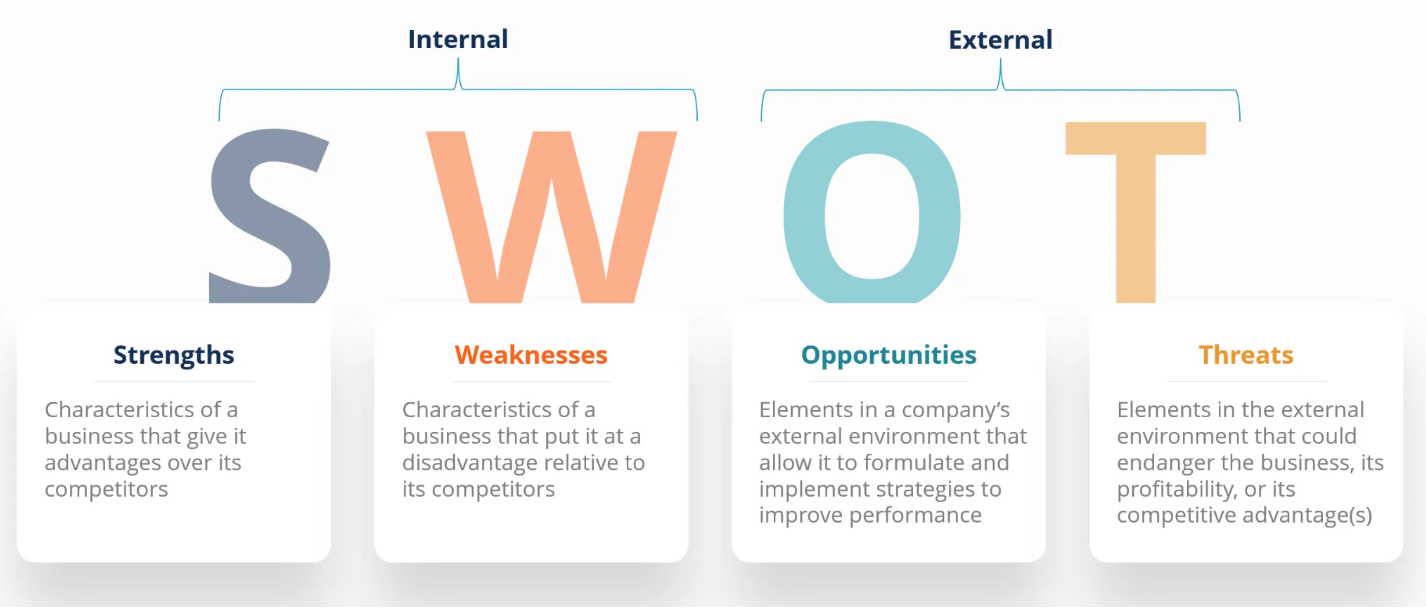Any business planning objective should serve two purposes. The first benefit is that it enables you to run your company with a clear vision focused on where you want to see it a year from now, and it acts as a road map for achieving the professional objectives you’ve set for yourself.
What is a Business plan objective?
A business plan and business planning objectives are also necessary to demonstrate to banks and financial institutions that you have access to your company’s road map. To reduce their risk factors to a greater extent, banks want to be confident that you have a natural direction for how your firm will develop in the future.
Entrepreneurs must first decide which aims and objectives should be accomplished for the business to flourish before drafting a business strategy. To focus on particular outcomes, create an outline or reference list that lists the essential components of the plan. Depending on the plan’s aim, the components of a business plan indicate significant planning objectives.
For instance, companies looking for funding will include goals that concentrate on the present and upcoming financial projections. These forecasts demonstrate the company’s financial stability and ability to repay debt.
Here are some questions to ask yourself if you’re having problems deciding what your goals and ambitions are.
- How devoted am I to see this through?
- Am I prepared to work hard for little income, risk my own money, and forego my time and way of life for years?
- What will happen to me if this business doesn’t succeed?
- How many people will this business eventually have if it is successful?
- What will the company’s yearly earnings be in a year? 5-year period?
- What would its market share be during that period?
- Will it target a particular market or offer a wide range of products and services?
- What plans do I have for geographic growth? Local? National? Global?
- Will I be a hands-off manager, or will I assign a large percentage of the work to others?
See Also: How To Fix Screen Recording Failed to Save due to 5823 Error?
How to Develop Powerful Business Goals
The purpose of a business plan is to have an effective strategy to run a business fluently.
Using the Effective goal-setting technique is the most excellent way to decide the company objectives for any brand. Goals should be:
- Specific: Specify the desired option of the target and the people in charge of preserving these results.
- Include a regular reporting plan, so everyone knows their progress toward accomplishing their goals.
- While objectives should be high-caliber, employees must feel that they are doable. Make sure your goals aren’t overly lofty.
- Relevant: Every aim must line up with the organization’s specific objectives.
- Timely: Goals must adhere to a set timeline. For instance, sales teams can have a monthly sales goal they must meet.
Business planning objectives
Strategy
It is one of the essential objectives of a business plan.
Gauge strategy management uses the analysis and comparison, and planned results.
Aspects of the plan that don’t work well can be dropped or replaced depending on the company’s strengths and shortcomings. For instance, a new service might be tested on a specific group of clients, or a product might be pulled from one market and presented in another.
Financing
Obtain Financing Before awarding company business loans, banks and other financial institutions use the strategy to conduct due diligence. The business plan allows lenders to comprehend the owner’s aims for the firm, how it will operate, and how the owner sees the enterprise’s relative financial worth.
The financial portion of a company plan is typically one of the last sections, and it outlines a company’s projected financial future and its historical financial position (if applicable). In this portion of the strategy, businesses submit supporting materials like budgets and financial statements in addition to funding requests.
The financial component is used by businesses to support their request for finance from lenders or investors. This section also serves as a financial road map that helps you plan your budget for your company’s expected future revenue and costs.
Establish Objectives
A business plan is used by management to reach an agreement on a company’s description, goals, target market, and execution plan for achieving business plan goals.
Without a business plan, management lacks an efficient way to test various operating hypotheses and evaluate the results from a financial, marketing, and operations standpoint. Officials of the company will therefore struggle to deploy financial and operational resources effectively. It is one of the most essential business planning objectives.
Marketing analysis
It is entirely up to you how you decide to arrange this information. A variety of outline formats can be effective as long as you include all the essential information. Just keep the goal of your strategy in mind and draw more attention to or extend the areas most relevant to your goal.
It’s essential to understand what is the purpose of a business plan. It’s also critical to understand that, as you prepare to launch or expand your business, you should conduct extensive research and learn a great deal about the marketing space of your industry.
See Also: Marketing Research Process.
SWOT analysis
Among the objectives of a business plan, The SWOT analysis enables you to identify your competitive advantages, areas for business expansion, and weak points. You can use this easy method to discover your business’s possibilities and risks. The procedure considers the internal and external concerns your business must deal with.
A SWOT analysis will put you in a position to take advantage of possibilities and develop winning plans. Understanding your internal environment will help you find strategies to improve client satisfaction, accomplish your goals, and improve sensitive areas that affect your performance.
Conclusion
For many businesses, well-prepared company objectives are less likely to alter regularly since they frequently address enduring difficulties and aims. However, it can still be beneficial to review your business objectives regularly to ensure they are in the organization’s best interests.
As software inventions become available and best practices alter, a business aim involving technology may shift. Balance the organization’s short- and long-term goals as you think about a business purpose.
Setting specific business goals will enable you to perform better than your rivals and effectively communicate your value proposition to the market. They’re a great way to interact directly with your team because they can direct workers’ attention to the most crucial tasks and improve resource management.
You might even outperform rivals if you have well-specified business objectives in place because you’ll be able to communicate your company’s longer-term value offer more effectively.
FAQ’S
What is a business objective example?
1. To reinvest profits in the company to grow or improve it. 2. To employ growth models to aid in the success of a business. 3. To promote creative thinking through targeted exercises.
Why are objectives important to a business?
Companies establish goals and objectives to aid in decision-making, and this enables companies to choose what should be their primary emphasis. Goals and objectives help convey the direction the company aims to take essential stakeholders like employees and investors. They might be more inclined to support new initiatives as a result.
What are intelligent objectives in business?
Specific, measurable, attainable, realistic (or relevant), and time-bound goals are referred to as 'SMART' goals (or timely).SMART goals are 'specific, measurable, achievable, realistic, and timely' • Specific - express the exact requirements in a concise phrase.
Who prepares a business plan?
A business plan is a written document created by the entrepreneur that lists all the necessary internal and external data to launch a new company.
What are strategic planning tools?
Business executives use strategic planning to determine where their company is now, where they want it to go, and what key performance indicators and actions they need to take to get there.



